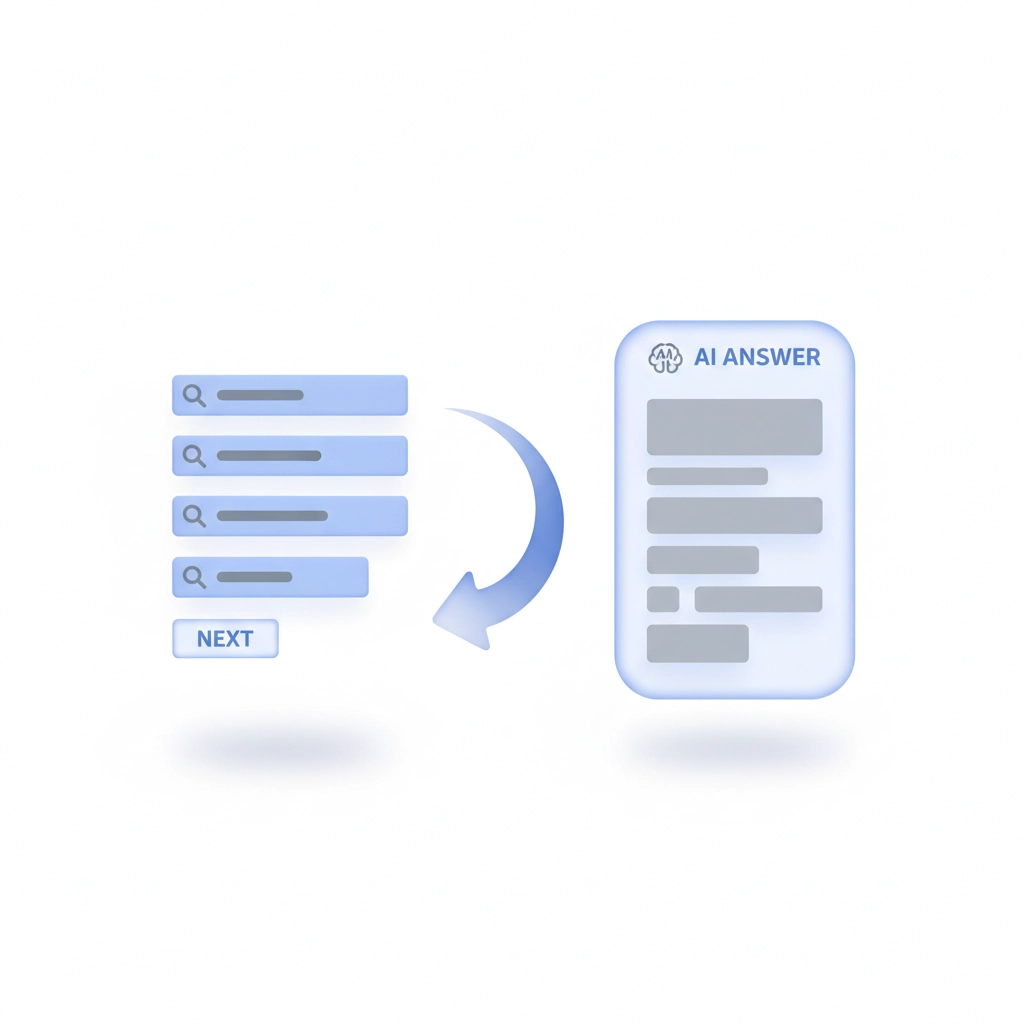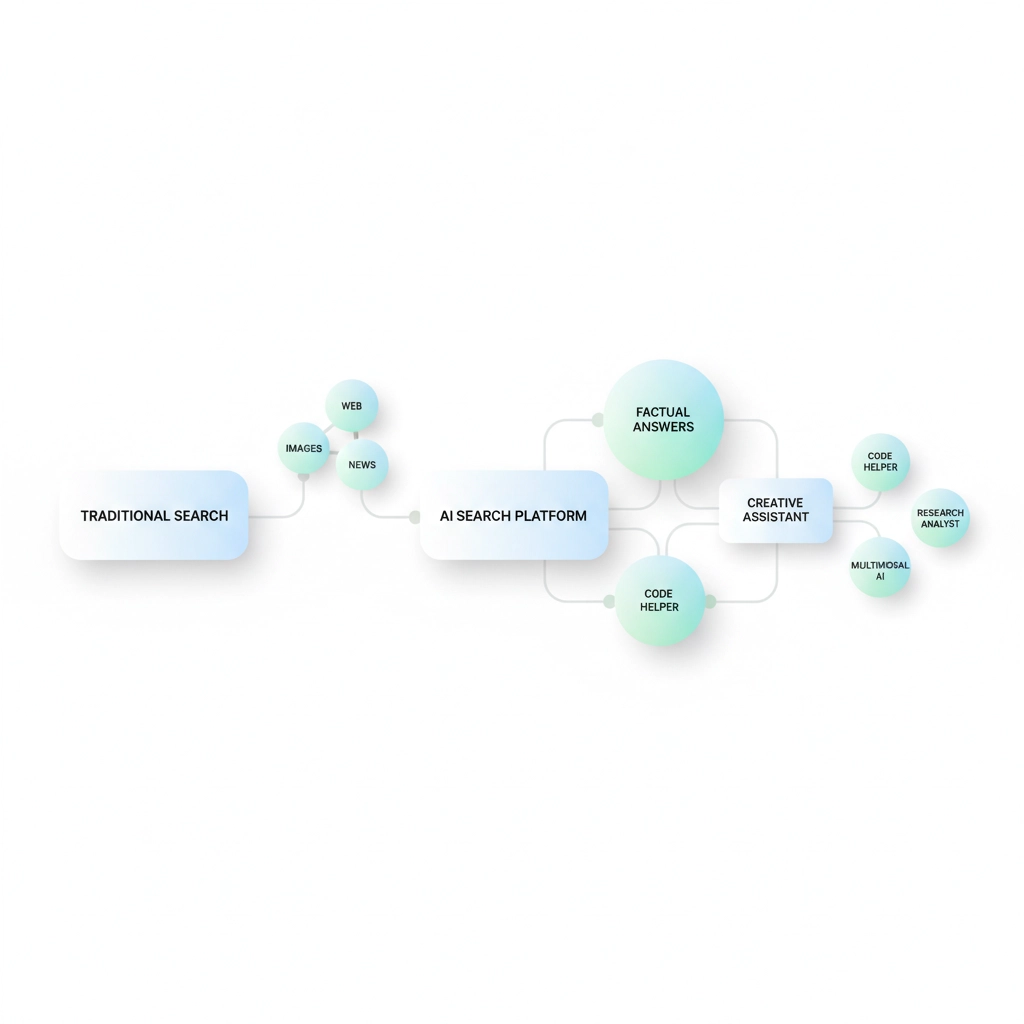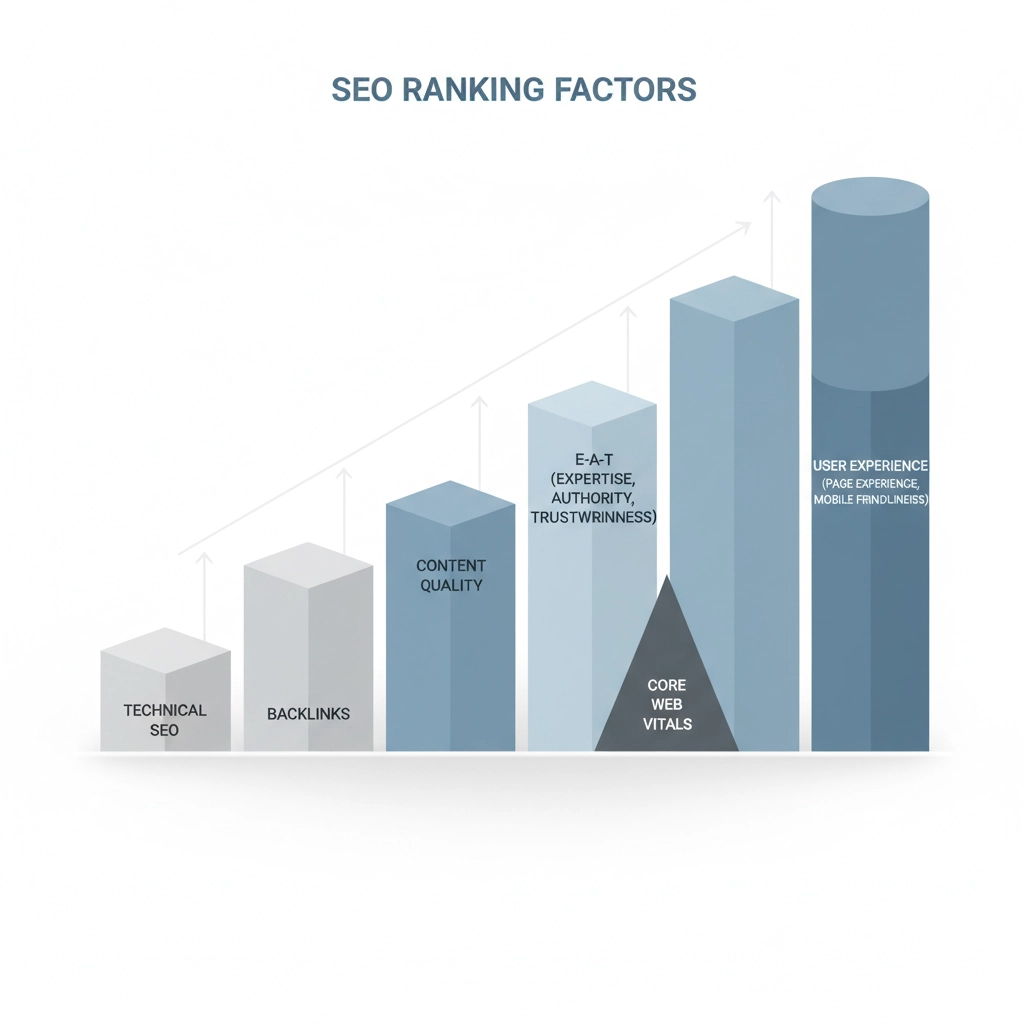The SEO landscape has undergone a seismic shift. What worked just two years ago is now obsolete: and what’s coming next will reshape how your customers find your business online.
Here’s the reality: 67% of SEO experts report that AI has fundamentally changed their optimization strategies. More importantly, studies from Semrush and Ahrefs reveal that top-ranking organic results are losing up to 45% of their traffic due to AI-powered search features. This isn’t a temporary trend: it’s the new normal.
If you’re still optimizing your website using 2022 tactics, you’re falling behind competitors who understand the AI-driven search ecosystem. The question isn’t whether AI will impact your SEO results: it’s whether you’ll adapt quickly enough to maintain your competitive edge.
How AI Has Transformed Search Forever
Traditional search engines used to match keywords and count backlinks. Today’s AI-powered search systems understand context, intent, and user behavior patterns with unprecedented sophistication.
Google’s AI Overviews, ChatGPT’s web search capabilities, and Microsoft’s Copilot integration have created what industry experts call “zero-click searches.” Users get synthesized answers directly on search results pages without ever visiting individual websites.
This shift has measurable consequences. Organic click-through rates have plummeted from 1.41% to 0.64% for queries with AI Overviews: a 54% decrease. Your content might fuel an AI-generated response, but you won’t receive clicks or appropriate credit.
The implications are staggering. Businesses that relied on informational content to drive website traffic are seeing their visitor numbers collapse, even when their content ranks #1 for target keywords.
The Rise of Answer Engines and Generative Search
Beyond traditional search engines, we’re witnessing the emergence of “answer engines”: platforms like Perplexity, Claude, and ChatGPT that synthesize information from multiple sources to provide direct answers.
These platforms don’t just display search results; they create new content by combining information from various websites. This process, known as Generative Engine Optimization (GEO), requires entirely different optimization strategies.
Unlike traditional SEO, which focused on ranking for specific keywords, GEO requires optimizing for:
- Citation-worthy content that AI systems reference as authoritative sources
- Structured data that helps AI understand your content’s context and relationships
- Comprehensive topic coverage that positions your content as the definitive resource
- Brand mentions and reputation signals that establish credibility across the web
New Ranking Factors That Actually Matter
The traditional ranking factors: keyword density, exact-match domains, and quantity-focused link building: are losing relevance. AI-powered search algorithms now prioritize:
Expertise, Authority, and Trust (E-A-T) Signals
Search engines evaluate whether your content demonstrates genuine expertise. This means author credentials, industry recognition, and third-party validation matter more than ever.
User Experience and Core Web Vitals
AI algorithms factor technical performance into rankings because page speed, mobile responsiveness, and user interaction metrics directly correlate with user satisfaction.
Brand Recognition and Mention Patterns
AI systems analyze how often your brand appears across reputable sources, social media platforms, and industry publications. Strong brand signals now influence search visibility significantly.
Content Depth and Comprehensiveness
Surface-level content gets filtered out. AI rewards comprehensive resources that thoroughly address user questions and related subtopics.
Why Traditional SEO Metrics Are Failing
Standard SEO metrics like keyword rankings and organic traffic volume no longer tell the complete story. Here’s what’s happening:
Keyword Rankings Don’t Guarantee Visibility
Your content might rank #1 for target keywords but receive zero clicks if AI Overviews display synthesized answers above organic results.
Organic Traffic Isn’t the Only Success Metric
Brand awareness, citation frequency, and AI platform visibility are becoming equally important measures of SEO success.
Link Building Requires Quality Over Quantity
AI algorithms can distinguish between earned editorial links and manipulative link schemes with remarkable accuracy. Low-quality link building now actively hurts your rankings.
Tools for Tracking AI Visibility
Monitoring your SEO performance in an AI-driven landscape requires new tools and metrics:
AI Overview Tracking Tools
Platforms like BrightEdge and SearchPilot now track when your content appears in AI Overviews and answer boxes across different search queries.
Citation Monitoring Systems
Tools like Brand24 and Mention track when AI systems reference your content as source material, even without direct links.
Cross-Platform Performance Analytics
Monitor your content’s performance across ChatGPT, Perplexity, and other AI platforms that don’t operate like traditional search engines.
How to Future-Proof Your SEO Strategy
Success in 2025 requires adapting your approach to work with AI systems rather than against them.
Create Citation-Worthy Content
Develop comprehensive, well-researched content that AI systems want to reference. Include original data, expert interviews, and authoritative sources that establish your content as trustworthy.
Optimize for Multiple Platforms
Your SEO strategy must now account for visibility across Google, ChatGPT, Perplexity, Microsoft Copilot, and other AI-powered platforms. Each has different requirements for content discovery and ranking.
Build Genuine Brand Authority
Focus on earning recognition within your industry through thought leadership, media coverage, and expert contributions. AI systems increasingly rely on brand reputation signals when determining content quality.
Embrace Structured Data Implementation
Help AI systems understand your content through proper schema markup, clear headings, and logical information architecture. The better AI can parse your content, the more likely it is to be featured in generated responses.
Focus on User Intent Over Keywords
Instead of targeting specific keyword phrases, create content that comprehensively addresses user questions and related concerns. AI rewards thorough, helpful resources over keyword-stuffed content.
The Conversion Impact You Can’t Ignore
The shift to AI-powered search isn’t just changing visibility: it’s transforming the customer journey. Users who receive AI-generated answers often have different expectations and behaviors when they do visit your website.
Higher-Quality, Lower-Volume Traffic
You’ll likely see fewer website visitors, but those who do arrive will be more qualified prospects with specific needs and higher conversion intent.
Increased Importance of On-Site Experience
Since fewer users browse multiple websites for information comparison, your site must deliver exceptional value immediately. First impressions carry more weight than ever.
Brand Recognition as a Conversion Factor
Users are more likely to trust and convert on websites they recognize from AI-generated citations and mentions across multiple platforms.
What This Means for Your Business
The businesses that thrive in this AI-driven landscape won’t be those that cling to outdated SEO tactics. They’ll be the ones that embrace AI as both a challenge and an opportunity.
Start Building for Authority, Not Just Rankings
Invest in creating genuinely valuable content that establishes your expertise and earns recognition from industry peers and publications.
Diversify Your Traffic Sources
Reduce dependence on organic search traffic by building direct brand awareness, email lists, and relationships that drive business regardless of search algorithm changes.
Monitor New Metrics That Matter
Track brand mentions, citation frequency, and cross-platform visibility alongside traditional SEO metrics to get a complete picture of your online presence.
The transformation is accelerating, and businesses that delay adaptation risk losing visibility entirely. The question isn’t whether you should adjust your SEO strategy for AI: it’s how quickly you can implement the changes that will keep you competitive.
Ready to future-proof your SEO strategy for the AI-driven search landscape? Our team at Expert SEO Consulting helps businesses navigate these complex changes with data-driven strategies that work. Book a consultation today to discover how AI is specifically impacting your industry and what actions you need to take to maintain your competitive edge.











